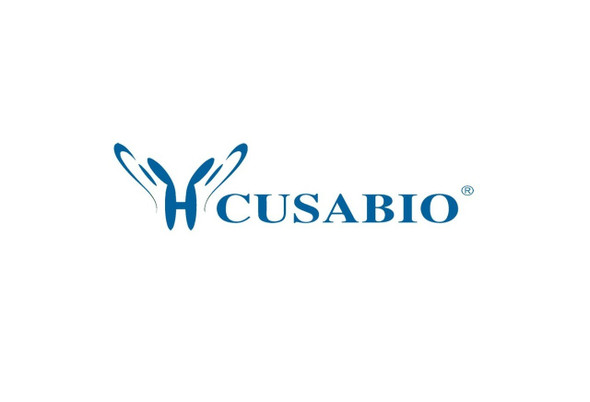Cusabio Lassa virus Recombinants
Recombinant Lassa virus RING finger protein Z (Z) | CSB-EP524825LNP
- SKU:
- CSB-EP524825LNP
- Availability:
- 3 - 7 Working Days
Description
Recombinant Lassa virus RING finger protein Z (Z) | CSB-EP524825LNP | Cusabio
Alternative Name(s): Zinc-binding protein
Gene Names: Z
Research Areas: Others
Organism: Lassa virus (strain Mouse/Sierra Leone/Josiah/1976) (LASV)
AA Sequence: GNKQAKAPESKDSPRASLIPDATHLGPQFCKSCWFENKGLVECNNHYLCLNCLTLLLSVSNRCPICKMPLPTKLRPSAAPTAPPTGAADSIRPPPYSP
Source: E.coli
Tag Info: N-terminal 6xHis-tagged
Expression Region: 2-99aa
Sequence Info: Full Length of Mature Protein
MW: 14.6 kDa
Purity: Greater than 90% as determined by SDS-PAGE.
Relevance: Plays a crucial role in virion assembly and budding. Expressed late in the virus life cycle, it acts as an inhibitor of viral transcription and RNA synthesis by interacting with the viral polymerase L. Presumably recruits the NP encapsidated genome to cellular membranes at budding sites via direct interaction with NP. Plays critical roles in the final steps of viral release by interacting with host TSG101, a member of the vacuolar protein-sorting pathway and using other cellular host proteins involved in vesicle formation pathway. The budding of the virus progeny occurs after association of protein Z with the viral glycoprotein complex SSP-GP1-GP2 at the cell periphery, step that requires myristoylation of protein Z. Also selectively represses protein production by associating with host eIF4E.
Reference: "Characterization of the Lassa virus matrix protein Z: electron microscopic study of virus-like particles and interaction with the nucleoprotein (NP)." Eichler R., Strecker T., Kolesnikova L., ter Meulen J., Weissenhorn W., Becker S., Klenk H.D., Garten W., Lenz O. Virus Res. 100:249-255(2004)
Storage: The shelf life is related to many factors, storage state, buffer ingredients, storage temperature and the stability of the protein itself. Generally, the shelf life of liquid form is 6 months at -20?/-80?. The shelf life of lyophilized form is 12 months at -20?/-80?.
Notes: Repeated freezing and thawing is not recommended. Store working aliquots at 4? for up to one week.
Function:
Involvement in disease:
Subcellular Location:
Protein Families:
Tissue Specificity:
Paythway:
Form: Liquid or Lyophilized powder
Buffer: If the delivery form is liquid, the default storage buffer is Tris/PBS-based buffer, 5%-50% glycerol. If the delivery form is lyophilized powder, the buffer before lyophilization is Tris/PBS-based buffer, 6% Trehalose, pH 8.0.
Reconstitution: We recommend that this vial be briefly centrifuged prior to opening to bring the contents to the bottom. Please reconstitute protein in deionized sterile water to a concentration of 0.1-1.0 mg/mL.We recommend to add 5-50% of glycerol (final concentration) and aliquot for long-term storage at -20?/-80?. Our default final concentration of glycerol is 50%. Customers could use it as reference.
Uniprot ID: O73557
HGNC Database Link: N/A
UniGene Database Link: N/A
KEGG Database Link: N/A
STRING Database Link: N/A
OMIM Database Link: N/A










